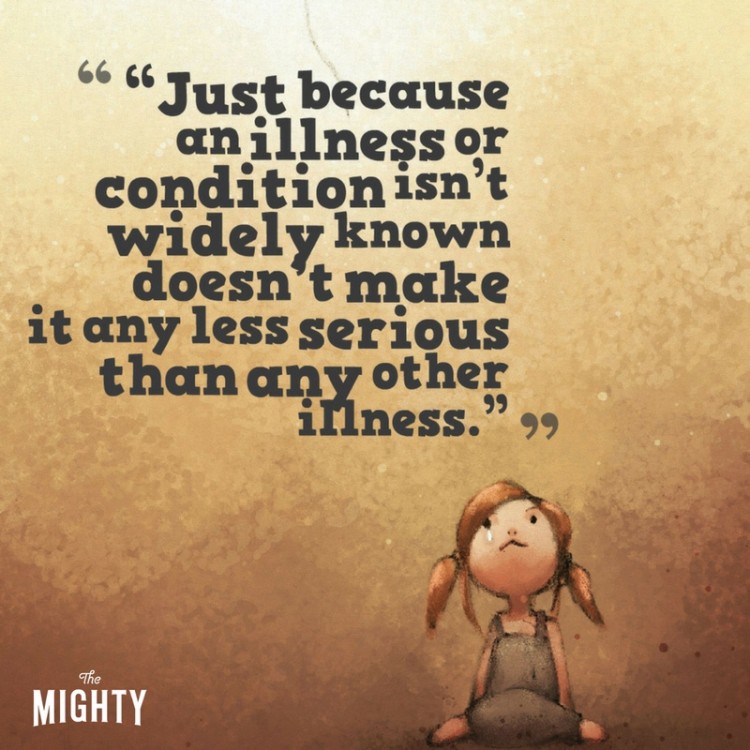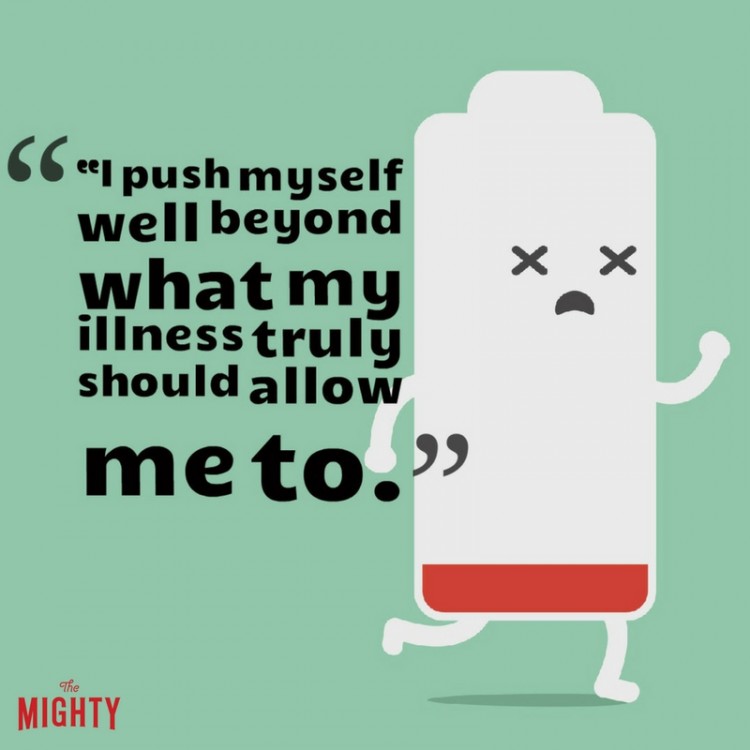17 Things Healthy People Need to Hear During Invisible Illness Awareness Week
,
When a person’s illness isn’t easily visible, it can be difficult for outsiders to grasp the challenges he or she faces. “If you look ‘normal,’” they may say, “you can’t really bethat sick.” Nothing could be further from the truth.
When a person’s illness isn’t easily visible, it can be difficult for outsiders to grasp the challenges he or she faces. “If you look ‘normal,’” they may say, “you can’t really bethat sick.” Nothing could be further from the truth.
As the chronic illness community comes together to support Invisible Illness Awareness Week, which began on September 26, we asked our Mighty community what message they want to share to explain the truth about how invisible illness affects their lives and how their friends, families and acquaintances can better support them. By educating the general population, we can hopefully get closer to acceptance and understanding of the realities of invisible illness.
Here’s what they said:
1. “I appear as I want you to see me. I paint on my ‘I’m OK’ face every morning before school and walk around with a smile, but the truth is that I am in chronic pain, always struggling, but you will never see that because I do not want to appear in that light. You may believe I am faking being sick, but I am actually faking being well, and people need to not be as quick to judge.”
2. “Just because I’m young doesn’t mean I’m not disabled. I have had many older men and women yell at me and point to the handicapped sign and then they realize I have handicapped plates. Just because I’m young, doesn’t mean I’m not struggling. I didn’t realize disability had an age limit… someone should really tell my body that.”
3. “I don’t need you to understand what I go through. I just need you to be a compassionate human being like you would to someone who was fighting an illness you could see. Don’t pity, but be decent.”
4. “Just because you’re tired of hearing about us being sick or in pain doesn’t make us any less sick or in pain. I know you can get desensitized to hearing we’re in pain every day, but we don’t get the luxury of being desensitized to the pain. Please be patient with us, and remember we’re struggling and often smiling through pain.”
5. “If I’m out doing something and smiling, I’m running on adrenaline and it will take me several days to a week to recover.”
6. “My illness may be labeled invisible, but if you look closely you can tell when I’m not doing well. I use a wheelchair, I’m more pale, don’t talk as much, etc. so my illness really isn’t that invisible.”
7. “Though I may have the same illness as your aunt, your friend of a friend, whomever, I’m not going to be the same or healed by random internet advice. Please don’t be Doctor Google unless you’re trying to be supportive and educate yourself.”
8. “Just because an illness or condition isn’t widely known doesn’t make it any less serious than any other illness.”

9. “This isn’t who I am. My illness does not define me. So even when I am sick, I will pull myself together. I will have a social life. I am determined to live my life to the fullest, sick and all.”
10. “Chronic illness can be lonely. It is easier to make no plans than to cancel plans, especially when friends and family members may not be able to understand. Please don’t give up on a person because their lives are busy with doctors, treatments, and seeking health.”
11. “Just because I can hang out with you seemingly normally for hours doesn’t mean I’m not in pain inside.”
12. “We don’t want unsolicited advice on how to treat our diseases! We don’t care that someone you ‘know’ has or ‘had’ the same thing. Everyone is different. Please keep opinions to yourselves unless specially asked a question.”
13. “My illnesses may be invisible, but I am not. My illnesses may be invisible, but my voice is not. My illnesses may be invisible, but the dreams I once had, the faith I once had, the person I once was — they are not.”
14. “I push myself well beyond what my illness truly should allow me to. I try to be the best wife, mother, coworker, and friend I can be. I probably disappoint myself way more than I do you.”

15. “I am not going to get better. I think people have a hard time getting that. For them, they get sick and then a few days or maybe a week later they get better. When you are still sick months, years later, people have trouble with that.”
16. “Ask questions before you judge me. I’m happy to share my story and want to educate others. My pain is real so if you don’t understand get to know me.”
17. “Using the sentence ‘I believe you’ will be one of the most empowering things you can say to someone you care about who is struggling.”






